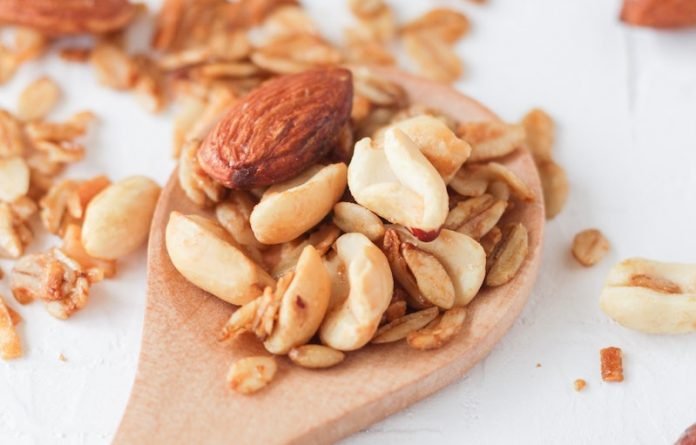
Scientists from Isfahan Cardiovascular Research Institute found that eating nuts at least twice a week is linked to a 17% lower risk of death from heart disease.
The research was presented at ESC Congress Meeting and was conducted by Dr. Noushin Mohammadifard et al.
Nuts are a good source of unsaturated fat and contain little saturated fat. They also have protein, minerals, vitamins, fiber, phytosterols, and polyphenols which benefit heart health.
Previous studies have related nuts with cardiovascular protection but there is limited evidence from the Eastern Mediterranean Region.
In the study, the team examined the association between nut consumption and the risk of heart disease and death.
A total of 5,432 adults aged 35 and older with no history of heart disease were tested. Intake of nuts including walnuts, almonds, pistachios, hazelnuts, and seeds was assessed with a food frequency questionnaire.
The specific outcomes examined were coronary heart disease, stroke, total cardiovascular disease, death from any cause, and death from heart disease.
The team found eating nuts two or more times per week was linked to a 17% lower risk of heart death compared to consuming nuts once every two weeks.
The connection was robust even after adjusting for factors that could influence the link.
The team says eating 30 grams of unsalted nuts per day is an important part of a healthy diet while noting that the energy density of nuts is high.
Raw fresh nuts are the healthiest. Nuts should be fresh because unsaturated fats can become oxidized in stale nuts, making them harmful.
If you care about heart health, please read studies about new way to prevent heart attacks, strokes, and common nutrient that is good for your heart rate.
For more information about health, please see recent studies about how oral health may affect your heart, brain and risk of death, and results showing doing this can prevent 2 million heart disease cases.
Copyright © 2022 Knowridge Science Report. All rights reserved.



